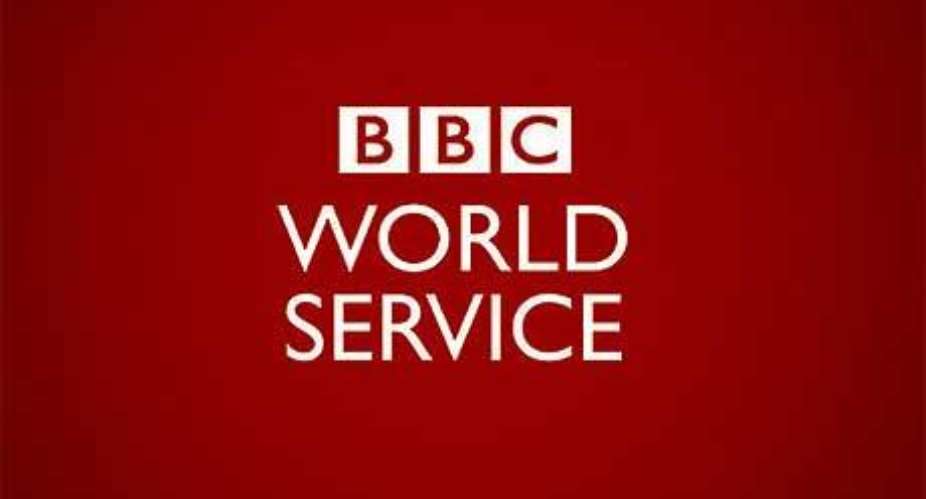23 September 2014: BBC World Service's radio programme, BBC Africa Debate, will take its September edition to Accra, Ghana, to discuss the Ebola epidemic. Presented by the BBC's Akwasi Sarpong and Dr Graham Easton who guest-presents Health Check for BBC World Service, BBC Africa Debate will explore why the Ebola outbreak was able to spread so extensively, and look at wider lessons to be learnt about containing local epidemics in today's world.
The Ebola epidemic has exposed the fragility of public health systems in theaffected countries, with healthcare workers dying alongside their patients as they lack basic necessities. The epidemic also has exposed weak leadership from governments across the region, which have been slow to act, and revealed a potentially dangerous lack of trust from their electorates.
The outbreak has already had a devastating impact on what has been an unstable region in the past. With so few doctors to care for Ebola victims, non-related ailments are overlooked – with deadly consequences for the vulnerable. Meanwhile, economies have already been hit hard by cancelled flights and travel warnings. They could take a long time to recover.
Akwasi Sarpong says: “We are holding this conversation in Ghana where there are no confirmed Ebola cases but where health authorities are on high alert as nearby Liberia, Guinea and Sierra Leone are overwhelmed by the virus which has also claimed some lives in Nigeria. We will ask why initial response in the current virus attack failed. We want to know how future outbreaks can be prevented and contained when global travel is so easy. The Ebola debate also brings to the fore the need for more medical research into neglected diseases in poorer countries - and an effective response in case of any future outbreaks.”
The debate will involve a panel and invited audience including international health experts, representatives of medical charities, government representatives from Ghana and the affected countries, and friends and family of people affected by Ebola. Audiences can also join the debate via social media, with conversations on Twitter (#bbcafricadebate) and on Facebook and Google+ (search for BBC Africa).
This edition of BBC Africa Debate will be recorded on Wednesday 24 September. It will be broadcast by BBC World Service at 19.00 GMT on Friday 26 September and will be repeated at 12.00 GMT on Sunday 28 September. The debate will also be online at bbcafrica.com.
BBC World Service
BBC World Service is an international multimedia broadcaster, delivering a wide range of language and regional services on radio, TV, online and via wireless handheld devices. It uses multiple platforms to reach its weekly audience of over 191 million globally, including shortwave, AM, FM, digital satellite and cable channels. Its news sites include audio and video content and offer opportunities to join the global debate. BBC World Service offers its multilingual radio content to partner FM stations around the world and has numerous partnerships supplying content to news websites, mobile phones and other wireless handheld devices as well as TV channels. For more information, visit bbc.com/worldservice.
BBC World Service's BBC Africa hub brings together the production of multilingual content about the continent on radio, on TV and online on bbcafrica.com. As it delivers content in English, French, Hausa, Kinyarwanda, Kirundi, Somali and Kiswahili, BBC Africa ensures a pan-African approach to the output, offering its audiences opportunities to join the global conversation. BBC Africa has teams based in London and across much of sub-Saharan Africa, and has well established production centres in various cities.
The BBC attracts a weekly global audience of 265 million people to its international news services including BBC World Service, BBC World News television channel and bbc.com/news.





 Meta releases new version of conversational AI across its platforms
Meta releases new version of conversational AI across its platforms
 Cape Town named Africa’s Best Airport 2024 by Skytrax
Cape Town named Africa’s Best Airport 2024 by Skytrax
 Bono East: Four injured after hearse transporting corpse crashes into a truck
Bono East: Four injured after hearse transporting corpse crashes into a truck
 ‘Be courageous, find your voice to defend our democracy’ — Sam Jonah urges journ...
‘Be courageous, find your voice to defend our democracy’ — Sam Jonah urges journ...
 Exodus of doctors, nurses and teachers have worsened because of unserious Akufo-...
Exodus of doctors, nurses and teachers have worsened because of unserious Akufo-...
 2024 election: Avoid insults, cutting down people in search of power – National ...
2024 election: Avoid insults, cutting down people in search of power – National ...
 ‘You passed through the back door but congratulations’ — Atubiga on Prof Jane Na...
‘You passed through the back door but congratulations’ — Atubiga on Prof Jane Na...
 Government’s $21.1 billion added to the stock of public debt has been spent judi...
Government’s $21.1 billion added to the stock of public debt has been spent judi...
 Akufo-Addo will soon relocate Mahama’s Ridge Hospital to Kumasi for recommission...
Akufo-Addo will soon relocate Mahama’s Ridge Hospital to Kumasi for recommission...
 We must not compromise on our defence of national interest; this is the time to ...
We must not compromise on our defence of national interest; this is the time to ...
